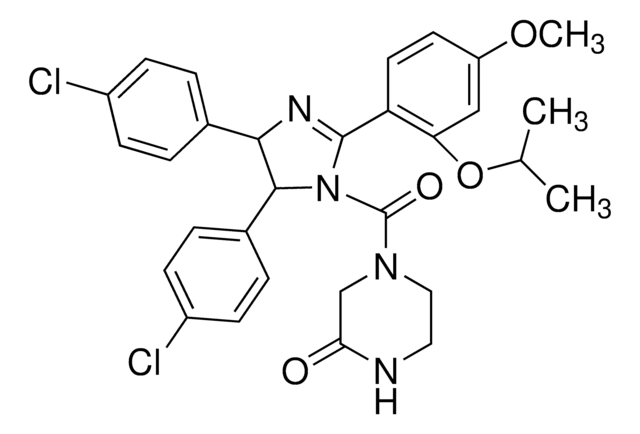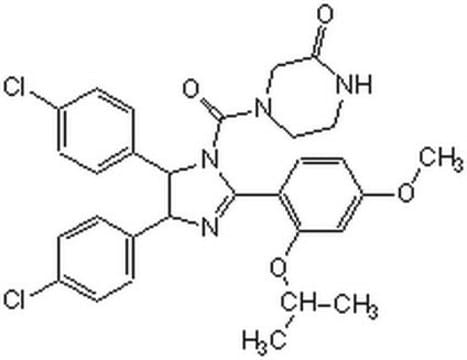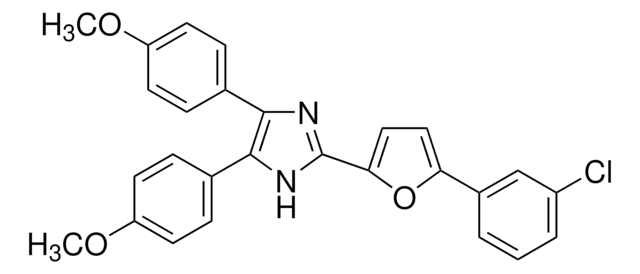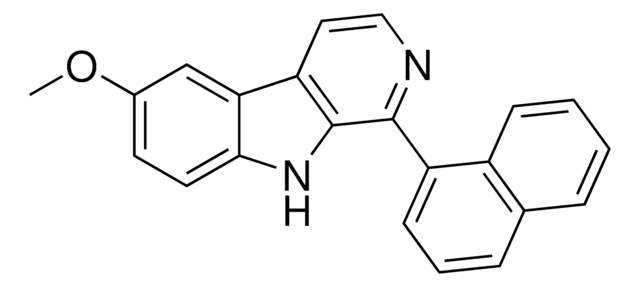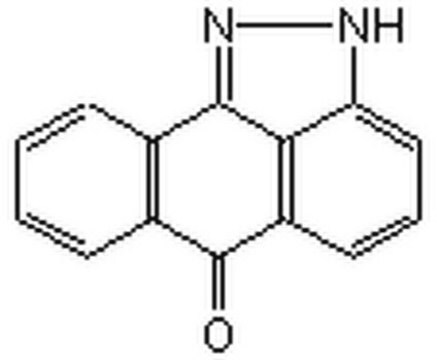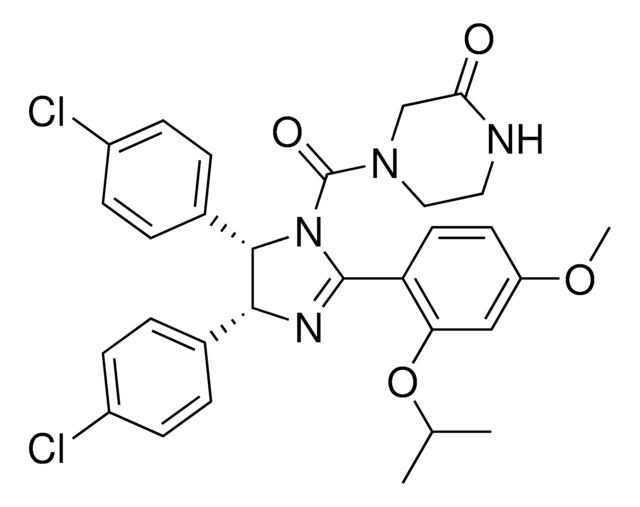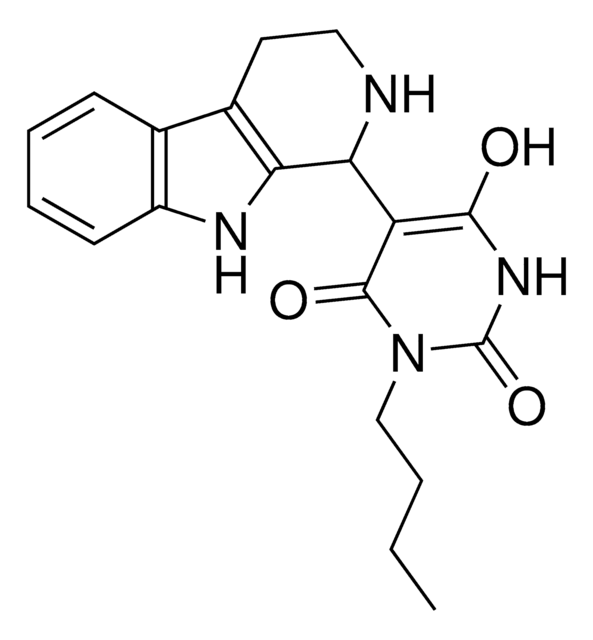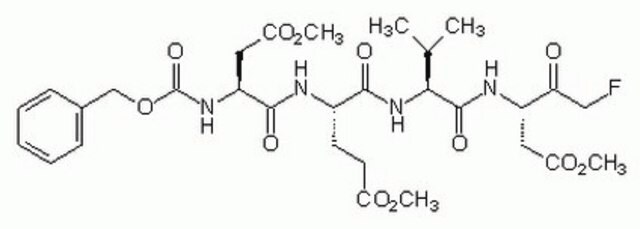444143
MDM2 Antagonist, Nutlin-3, Racemic
The MDM2 Antagonist, Nutlin-3, Racemic, also referenced under CAS 548472-68-0, controls the biological activity of MDM2. This small molecule/inhibitor is primarily used for Cancer applications.
Szinonimák:
MDM2 Antagonist, Nutlin-3, Racemic, MDM2 Inhibitor IV
About This Item
Javasolt termékek
Minőségi szint
Teszt
≥98% (TLC and HPLC)
Forma
solid
gyártó/kereskedő neve
Calbiochem®
tárolási körülmény
OK to freeze
protect from light
oldhatóság
DMSO: 25 mg/mL
ethanol: 25 mg/mL
kiszállítva
wet ice
tárolási hőmérséklet
−20°C
SMILES string
Clc1ccc(cc1)C2N(C(=NC2c5ccc(cc5)Cl)c4c(cc(cc4)OC)OC(C)C)C(=O)N3CCNC(=O)C3
InChI
1S/C30H30Cl2N4O4/c1-18(2)40-25-16-23(39-3)12-13-24(25)29-34-27(19-4-8-21(31)9-5-19)28(20-6-10-22(32)11-7-20)36(29)30(38)35-15-14-33-26(37)17-35/h4-13,16,18,27-28H,14-15,17H2,1-3H3,(H,33,37)
Nemzetközi kémiai azonosító kulcs
BDUHCSBCVGXTJM-UHFFFAOYSA-N
Általános leírás
Biokémiai/fiziológiai hatások
MDM2
Kiszerelés
Figyelmeztetés
Feloldás
Egyéb megjegyzések
Vassilev, L.T., et al. 2004. Science303, 844.
Jogi információk
Tárolási osztály kódja
11 - Combustible Solids
WGK
WGK 3
Lobbanási pont (F)
Not applicable
Lobbanási pont (C)
Not applicable
Analitikai tanúsítványok (COA)
Analitikai tanúsítványok (COA) keresése a termék sarzs-/tételszámának megadásával. A sarzs- és tételszámok a termék címkéjén találhatók, a „Lot” vagy „Batch” szavak után.
Már rendelkezik ezzel a termékkel?
Az Ön által nemrégiben megvásárolt termékekre vonatkozó dokumentumokat a Dokumentumtárban találja.
Tudóscsoportunk valamennyi kutatási területen rendelkezik tapasztalattal, beleértve az élettudományt, az anyagtudományt, a kémiai szintézist, a kromatográfiát, az analitikát és még sok más területet.
Lépjen kapcsolatba a szaktanácsadással